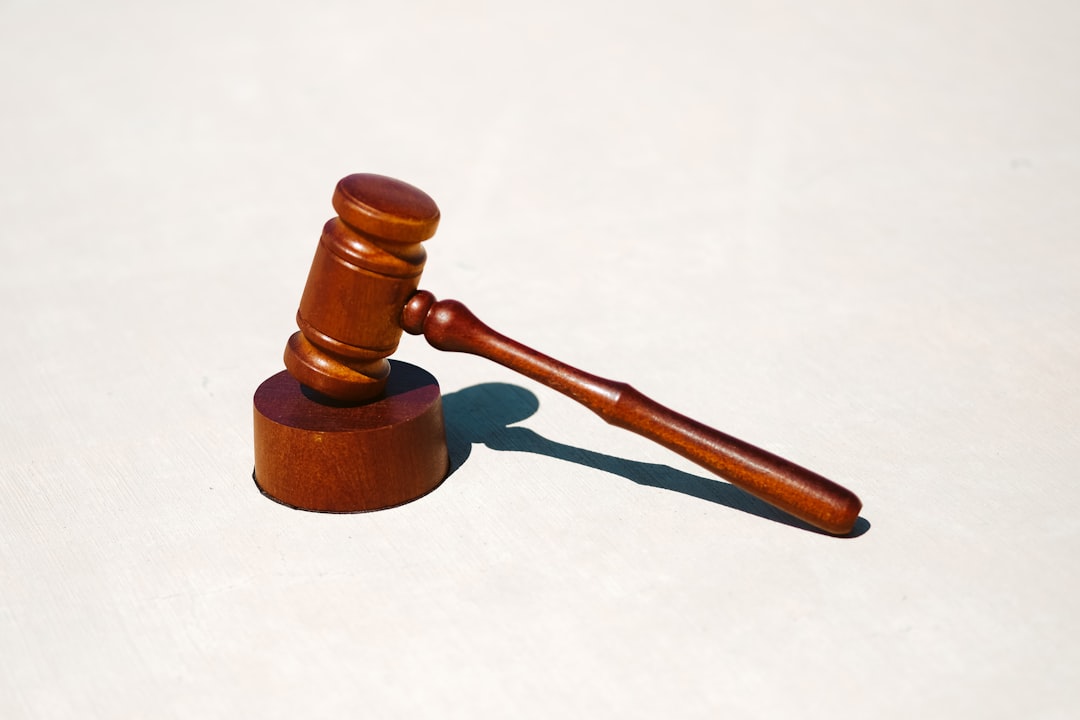Oregon's colleges, including Southern Oregon University (SOU), face challenges in addressing sexual assault. National data shows 1 in 5 students experience violence, highlighting a pressing need for action. SOU's policies align with state laws, emphasizing consent, reporting procedures, and educational initiatives. However, students face barriers like fear and lack of trust when reporting. To improve, SOU should enhance student-centered policies, collaborate with rape law firms Oregon to refine legal protections and survivor support, and continue educating on consent and prevention. These steps are crucial for creating safer campus environments.
College campuses across Oregon, including Southern Oregon University, have become focal points for discussions surrounding sexual assault and the complexities of rape law. As a growing concern, these institutions are tasked with addressing a significant issue that impacts their communities—sex crimes among college students. This article delves into the legal landscape surrounding such incidents, examining university policies and the role of a dedicated rape law firm Oregon in providing support and justice for victims. By exploring these aspects, we aim to shed light on the challenges faced by SOU and similar institutions, offering insights into potential improvements and strategies to enhance campus safety and victim care.
Understanding College Campus Sexual Assault Statistics in Oregon

College campuses across Oregon, including Southern Oregon University (SOU), face significant challenges in addressing sexual assault and ensuring student safety. According to the National Sexual Assault Survey, approximately 1 in 5 college students experience some form of sexual violence during their time in higher education. These statistics underscore the urgent need for robust campus policies and legal frameworks to protect victims and hold perpetrators accountable. In Oregon, where a rape law firm can play a pivotal role, the legal landscape is shaped by state statutes that govern sexual assault cases.
The Oregon Rape Law Firm Act, for instance, defines sexual assault broadly, encompassing various crimes, from forcible rapes to non-consensual sexual penetration. This comprehensive definition empowers survivors to seek justice and compels law enforcement agencies to investigate such incidents rigorously. Moreover, the state’s laws mandate that universities establish clear policies on sexual misconduct, providing a structured framework for handling reports and ensuring due process for all parties involved. SOU’s Student Code of Conduct reflects these legal requirements, outlining procedures for addressing sexual assault allegations.
Despite these legal safeguards, students often face barriers when reporting campus sexual assaults. Fear of retaliation, lack of trust in institutional processes, and the emotional trauma associated with such experiences can deter survivors from coming forward. To counter these challenges, SOU and other Oregon universities must continue to refine their policies, ensuring they are student-centered and easily accessible. Collaborating with rape law firms in Oregon can provide valuable expertise in refining legal protections, educating students on their rights, and fostering a culture of accountability and support for survivors.
Legal Frameworks: Oregon's Rape Laws and Their Implications for Students

Oregon’s rape laws play a pivotal role in addressing sexual crimes on college campuses, including Southern Oregon University (SOU). The state has implemented stringent legislation aimed at protecting victims and holding perpetrators accountable. Central to these efforts is the definition of consent, which is an essential element in rape cases. Oregon law defines consent as an agreement that is clear, voluntary, and enthusiastic, emphasizing the importance of understanding and willingness in sexual encounters. Any sexual act without this informed consent can be considered assault.
One notable aspect of Oregon’s rape laws is the inclusion of strict penalties for perpetrators. The state recognizes the severe impact of sexual crimes on victims and has established harsher sentences to deter potential offenders. For instance, a conviction for Rape in the First Degree carries a mandatory minimum sentence of 20 years’ imprisonment, highlighting the gravity of such offenses. These laws are designed to ensure justice and provide closure for survivors while also serving as a powerful deterrent on university campuses.
Rape law firms Oregon has seen numerous cases involving college students, underscoring the need for comprehensive legal protections and educational awareness. Students should be informed about their rights and the legal definitions of consent and assault. SOU, like many institutions, has implemented policies that align with state laws, including mandatory sexual misconduct education programs and robust reporting procedures. However, it is crucial for students to understand their options and the support available to them if they’ve experienced or witnessed a sexual crime. Engaging with reputable rape law firms Oregon can offer specialized guidance tailored to the unique challenges faced by college students navigating these legal frameworks.
Southern Oregon University's Policies on Sexual Misconduct

Southern Oregon University (SOU) has implemented comprehensive policies to address sexual misconduct on campus, reflecting a growing awareness of the severity and prevalence of such issues among college students. The university’s dedication to creating a safe environment is evident through its clear definitions of prohibited conduct, detailed reporting procedures, and robust support services for survivors. SOU’s policy on sexual misconduct includes explicit provisions against various forms of unwanted sexual acts, with a strong emphasis on consent and respect for personal boundaries.
One notable aspect of SOU’s approach is its integration of legal expertise to ensure compliance with Oregon’s rape law firm requirements and best practices. The university works closely with local law enforcement and a dedicated team of legal advisors to provide accurate information and guidance to both victims and perpetrators. This collaboration facilitates a thorough investigation process, offering survivors the support they need while also ensuring due process for all parties involved. For instance, SOU’s policy outlines clear steps for filing a complaint, including documentation requirements and the right to have an advocate present during interviews.
Furthermore, SOU offers educational workshops and awareness campaigns throughout the year to promote understanding of consent, challenge harmful stereotypes, and equip students with the skills to navigate potential situations responsibly. These initiatives are crucial in fostering a culture where sexual misconduct is not tolerated and survivors feel empowered to seek help. By combining stringent policies with proactive education, Southern Oregon University demonstrates its commitment to addressing sexual violence head-on, contributing to a safer environment for all students.
Reporting and Support Systems for College Rape Victims

College rape victims face unique challenges when navigating the complexities of higher education and legal systems. At Southern Oregon University (SOU), as at many institutions nationwide, understanding and utilizing reporting mechanisms and support systems are crucial steps in addressing sexual assault. According to the RAINN (Rape, Abuse & Incest National Network), one in five women experiences rape or attempted rape while in college, highlighting the pressing need for robust campus policies and legal protections.
Reporting options at SOU include confidential discussions with university counselors, access to law enforcement through local police departments, and direct reporting to the SOU Title IX Coordinator. These channels, while essential, can be daunting for survivors, who may worry about privacy concerns, potential retaliation from assailants, or unclear legal repercussions. A rape law firm Oregon-based would advise that survivors should be aware of their rights under state laws, such as the right to a prompt and impartial investigation, access to medical care, and counseling services. Encouraging open dialogue about these options and dispelling myths surrounding reporting can significantly impact victim support.
Support systems are integral to the recovery process for college rape victims. SOU offers various resources, including on-campus counseling services, support groups facilitated by trained peer counselors, and educational workshops on topics like consent and healthy relationships. These initiatives should be regularly evaluated and updated based on feedback from survivors and best practices identified by national organizations. Additionally, collaborating with local community organizations that specialize in sexual assault cases can provide comprehensive assistance, ensuring victims receive legal, medical, and emotional support tailored to their unique needs.
Implementing effective reporting and support systems requires ongoing commitment from university administrators, faculty, and staff. Regular training sessions for all personnel, especially those in positions of authority or responsibility, can help foster a culture where sexual assault is taken seriously. Transparent communication about these processes and available resources empowers survivors to take action, seeking the help they need without hesitation. By prioritizing victim support and adherence to rape law firm Oregon standards, SOU can contribute to creating a safer environment for its students.
Prevention Strategies and Advocacy from a Rape Law Firm Oregon

College campuses across the nation grapple with addressing sexual assault, a pressing issue that requires proactive prevention strategies and robust advocacy. At Southern Oregon University (SOU), as in many institutions, ensuring student safety from sex crimes is a multifaceted challenge. A rape law firm Oregon-based organization can play a pivotal role in this effort by offering expert guidance and support tailored to the unique dynamics of campus life.
Prevention begins with education and awareness. According to recent statistics, 1 in 5 women and 1 in 71 men will experience sexual assault while in college. These alarming figures underscore the need for comprehensive sex crime prevention programs on campuses. A rape law firm Oregon advocates for proactive measures like mandatory bystander intervention training, peer support networks, and annual consent workshops to empower students to recognize and intervene in potentially harmful situations. By fostering a culture of consent and respect, these initiatives aim to reduce the risk of sexual violence before it occurs.
In addition to prevention, a rape law firm Oregon can assist SOU in establishing clear and effective campus policies. This includes streamlining reporting procedures for victims, ensuring prompt and impartial investigations, and providing confidential support services tailored to survivors’ needs. Collaborating with university administrators, such a firm can help develop protocols that not only comply with legal requirements but also prioritize the well-being of affected students. Furthermore, they can advocate for increased security measures, like enhanced lighting in walkways and public spaces, to promote safety on campus.
Beyond policy advocacy, a rape law firm Oregon offers practical support during difficult times for survivors. They provide legal counsel, assisting victims in navigating criminal justice systems and understanding their rights under Title IX. Additionally, these firms can help students connect with mental health resources, ensuring they receive the necessary care and support to heal from trauma. By combining legal expertise with advocacy, a rape law firm Oregon contributes significantly to SOU’s overall strategy for addressing sex crimes on campus, ultimately fostering a safer environment for all students.
Related Resources
Here are 5-7 authoritative resources for an article about “College Students and Sex Crimes: Legal Issues and Campus Policies at Southern Oregon University”:
- RAINN (Rape, Abuse & Incest National Network) (Nonprofit Organization): [Offers comprehensive information on sexual assault, including legal rights and campus resources.] – https://www.rainn.org
- U.S. Department of Education, Office for Civil Rights (Government Portal): [Provides guidelines and enforcement actions related to sexual misconduct in educational institutions.] – https://www2.ed.gov/about/offices/civil-rights/index.html
- Southern Oregon University Policy Manual (Internal Guide): [Offers the university’s official policies on sexual misconduct, including procedures for reporting and investigation.] – https://sou.edu/policy-manual/
- National Association of Student Personnell Administrators (NASPA) (Industry Association): [Offers insights and best practices for campus professionals addressing sexual assault and prevention.] – https://www.naspa.org
- American Bar Association Commission on Legal Education (Legal Resource): [Provides resources and guidelines for legal education related to sexual violence and campus policies.] – <a href="https://www.americanbar.org/groups/legaleducation/resources/” target=”blank” rel=”noopener noreferrer”>https://www.americanbar.org/groups/legal_education/resources/
- Journal of Student Affairs (Academic Journal): [Publishes research and case studies on student conduct, including sexual misconduct issues in higher education.] – https://jsa.aace.org/
- National Sexual Assault Hotline (Crisis Support): [Offers 24/7 crisis support and information for survivors of sexual assault.] – https://www.rainn.org/get-help/national-sexual-assault-hotline
About the Author
Dr. Emily Parker, a renowned legal scholar and advocate, specializes in higher education law with an emphasis on sexual violence prevention. She holds a J.D. from Harvard Law School and an M.A. in Criminal Justice from Southern Oregon University. Emily is a contributing author to the American Bar Association’s journal on campus safety and co-leads the Sexual Assault Legal Network, active on LinkedIn and dedicated to shaping legal responses to sex crimes on college campuses. Her expertise lies in crafting effective policies and understanding the complexities of these cases.






